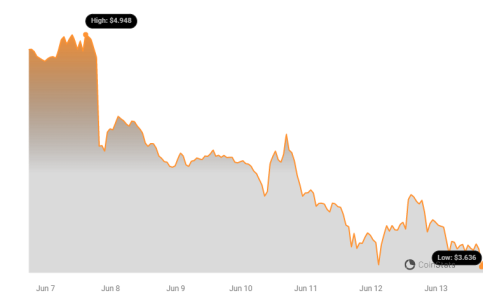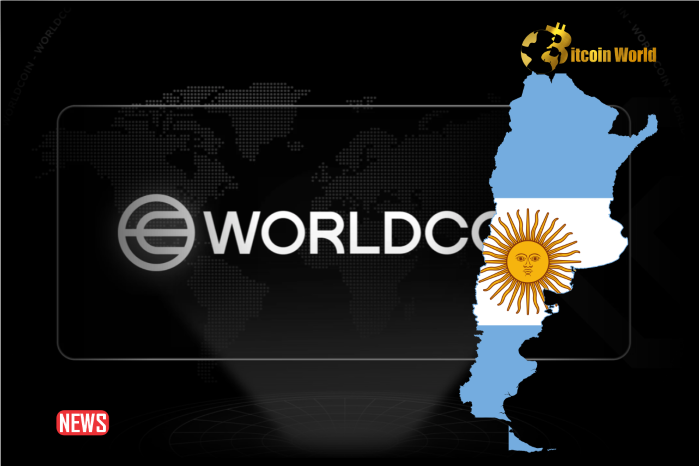Argentina’s regulators could be set to crack down on third-party Worldcoin (WDC) resellers, as scrutiny of the project continues in the Latin American nation.
Per a report from iPro Up, some Argentines have become unofficial Worldcoin “resellers” to “earn extra income.”
But this has placed them “in the crosshairs” of the likes of the National Securities Commission (CNV) and the tax body, the Federal Administration of Public Revenues (AFIP).
Facing Pressure: Argentina Regulators Target Worldcoin Resellers
Worldcoin has enjoyed phenomenal popularity in Argentina in recent months.
Huge lines have formed outside Worldcoin iris-scanning centers in many Argentinian cities, with many keen to claim their “free” WLD tokens.

But rather than hold onto these coins or trade them on regulated crypto exchanges, some Argentinians are choosing to swap their tokens for cash.
This has given rise to “resellers,” who offer new WLD holders cash or bank deposits in exchange for handing over control of their crypto wallets.
In many cases, resellers charge commission fees of up to 50% of the “token value” for their “services.”
The resellers allegedly “work as a team” with the so-called “coleros.” In Spanish, this term refers to people who earn money by waiting in lines to sell their spot to others.
These coleros stand in lines at Worldcoin iris-scanning centers, helping resellers convince people to use their services.
The media outlet noted that “many people do not know how to convert Worldcoin tokens into cash,” adding:
“This precisely where the resellers and coleros come in.”
‘Several Organizations’ Taking an Interest in Worldcoin Resellers
The media outlet noted that although such “operations” are “not illegal,” they should “go through the financial system.”
The “conversion” of tokens into fiat pesos is a business transaction in the eyes of the Argentine legal system.
“This is why coleros are in the crosshairs of several organizations,” iPro Up explained.
While one-off swap deals would not usually concern tax bodies and regulators, experts said that “changes in the case of resellers that deal with hundreds of users.”
In such cases, tax officers can claim that a person is operating an unofficial business, and legally oblige them to pay taxes.
A top auditor said that the CNV could get involved if it thinks resellers are operating unofficial crypto exchanges.
Under new rules, domestic crypto exchanges must obtain operating permits from the CNV and abide by strict KYC (Know Your Customer) protocols.
Worldcoin’s popularity has drawn the attention of Argentinian regulators and lawmakers, who are concerned about privacy-related matters.
World ID's verified proof of humanness can help increase trust online in Spain & around the world ?? pic.twitter.com/rpHEm6tRgF
— Worldcoin (@worldcoin) June 4, 2024
Tools for Humanity Looks to Ease Regulators’ Worries
Last month, the Tools for Humanity CEO Alex Blania visited Argentina to speak to top government officials. Tools for Humanity is the Worldcoin operator.
This followed calls from MPs to police Worldcoin. Lawmakers have also unveiled bills that would, if passed, force Worldcoin to abide by new privacy and data-related restrictions.
Regulatory bodies have also launched probes into Worldcoin’s operations in the country.
Argentina’s data protection agency announced the launch of an investigation into Worldcoin in January this year.
Disclaimer: The information provided is not trading advice, Bitcoinworld.co.in holds no liability for any investments made based on the information provided on this page. We strongly recommend independent research and/or consultation with a qualified professional before making any investment decisions.

